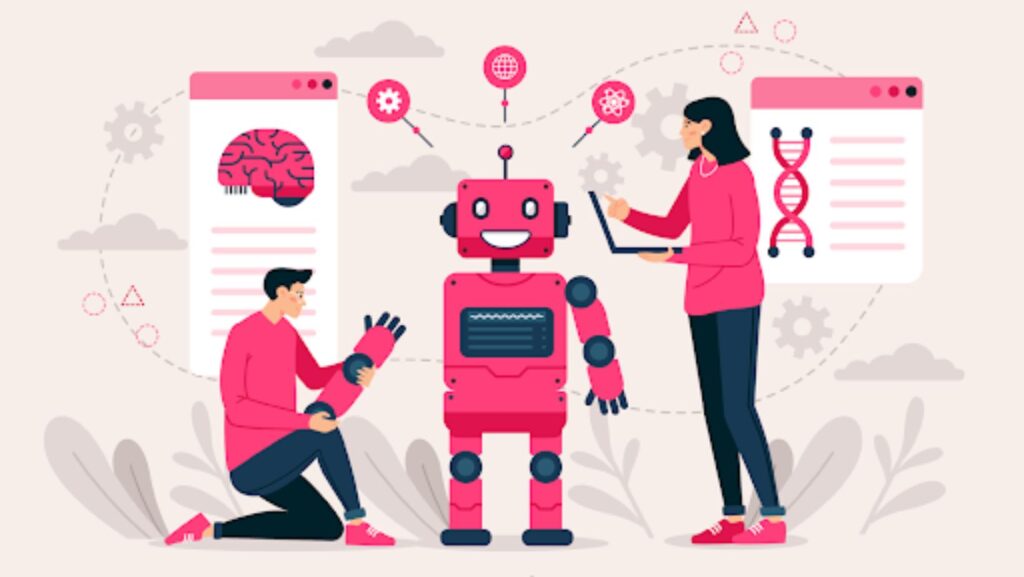Over the past few years, Gen AI has emerged as a more sophisticated member of the AI family and has introduced many novelties to numerous fields, such as healthcare, finance, entertainment, and others. The perspective of Gen AI is colossal, but this technology has substantial ethical concerns, and these issues should be resolved before the start of development to make the usage of Gen AI as harmless as possible.
Privacy and Data Security
The first and most prominent ethical issue surrounding Gen AI is privacy. Some Gen AI systems depend on large quantities of data to be efficient in their operations. This data may even contain personal and identifying information that an individual may not wish to have publicly accessible, such as medical information, financial information, and communication records.

To tackle these issues, adequate measures must be put in place to shield data and enhance dependable feedback. This encompasses general processes such as encryption, data storage, and access control. Also, standards should be laid concerning how to collect, store, and use the data so as not to infringe on the users’ privacy.
Ethical Use of AI in Healthcare
In healthcare, Gen AI is expected to serve as a tool that will enhance the quality of care through customized treatment regimens and diagnoses, timely detection, and management of ailments, and successful implementation of universal intercessory arrangements. Nevertheless, it is worth asserting that the ethical aspect in this field is especially acute. Some of the considerations must be complied with to achieve ethical standards in the healthcare include patient consent, privacy of patients’ health information and transparency of AI derived healthcare decisions.
Therefore, for the use of artificial intelligence in the delivery of care in healthcare, the patient’s free will and their ability to make rational decisions should be respected. This involves specifically stating how the AI is applied to diagnosis and treatment and also, else, that patients’ data is being used and their consent is sought. If you want to know more about the ethical consideration of using Gen AI in healthcare, you must need to look at guidelines and case studies that highlight best practices.
Bias and Fairness
The next major ethical concern that rises with gen AI is bias. Machine learning AI, especially reinforcement learning, learns from data and if this data set contains bias, the AI will also display bias as well as even escalate this aspect. The results may be prejudiced and biased in numerous aspects of people’s lives, including employment, credit issues, and even policing.
To eradicate this problem, the datasets must be diverse and representative to train the AI models involved in decision making. Also, AI systems should be monitored and evaluated regularly to check on the emergence of any biases that could be there.
Transparency and Accountability
This is especially because Gen AI systems have sophistication in them, which may at times make their functioning and even results hard to interpret. To increase transparency, it is recommended to design and implement post hoc AI models that allow those models to be explained easily. Furthermore, regularity and sources of checks, possible methods of review or grievances, precise accountability measures, also audits, and overviews have to include guidelines that guarantee the proper use of AI systems.
Autonomy and Control
The notable aspect of Gen AI systems is their growing independence and the resulting issue of who is in control and who is responsible. That is why, as the systems under study become increasingly powerful and effective in decision-making and actions, it is necessary to define the spheres and limitations of AI usage. The decisions made by AI agents must always be made by or reviewed by a human since it is our morality that should govern the decisions made in complex systems.
Laying down guidelines and measures like the fail-safes and the human-in-the-loop solutions can be useful in applications like self-driving cars and health care in order to avoid compromising the wellbeing of people.
Misinformation and Manipulation
Such threats are high because Gen AI possesses an ability to replicate events, things, and people in a realistic look, be it text, image, or video. This capability can be leveraged to create content with positive intent, including creative and educational content; however, it can also be misused to create fake news or manipulate the masses.

To this end, better detection and post-truth verification methods need to be generated and applied to help the recognition of fake or manipulated information.
Global and Societal Implications
It is insightful to understand how Gen AI has raised the ethical questions at the individual level of use, organizational level, as well as at a global level. This means that special attention should be paid to the precursors, developers and uses of AI systems bearing in mind that, like all technology, AI systems will inevitably become forms of expression and extension of power making existing inequality worse if not designed and used bearing in mind the plight of oppressed minorities and the marginalized.
For instance, AI-integrated surveillance systems potentially undermine civil rights and are likely to affect the disadvantaged groups.
Conclusion
The ethical versatility of Gen AI involves many subjects that can be grouped into the perspectives of privacy, prejudice, openness, self-management, and social influence. Solving these issues entails the collaboration of developers, policymakers and society.
For AI technologies to be used optimally and safely and to yield primary benefits, ethical considerations must be applied keenly at every stage of the Gen AI systems’ life cycle.
